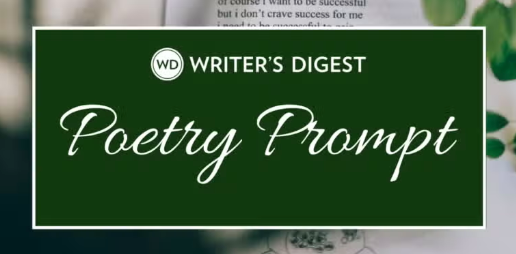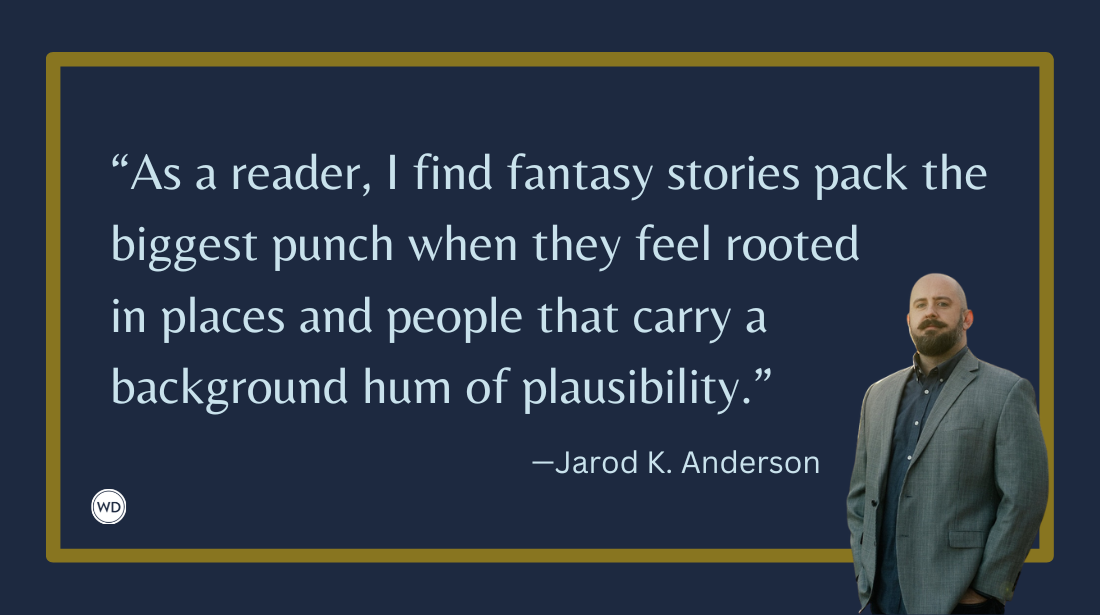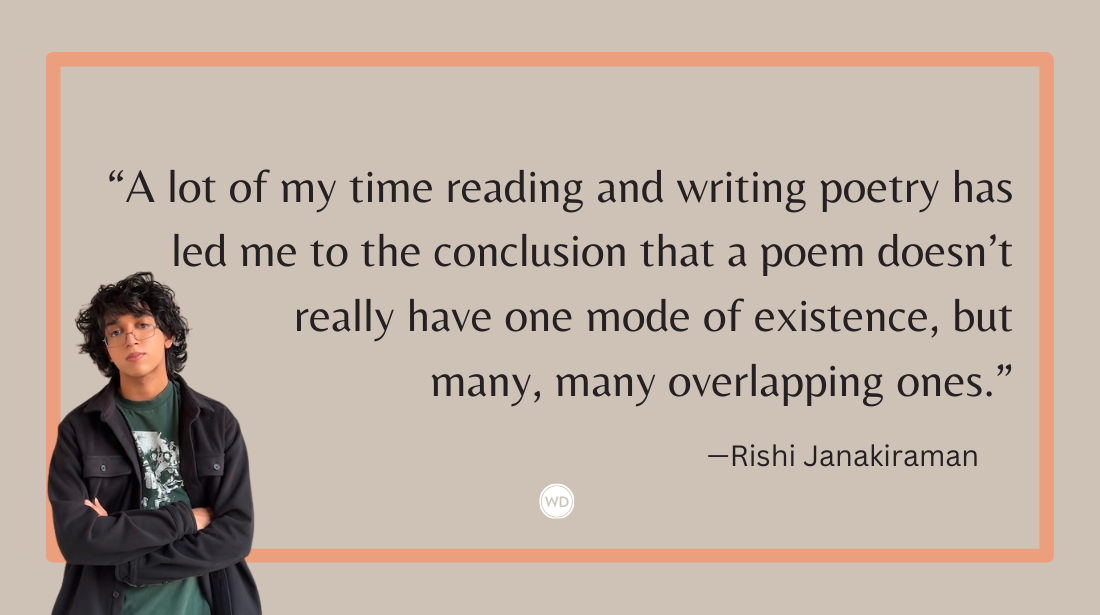On Writing and Anthologizing Poems
Award-winning author and bestselling editor of poetry anthologies James Crews discusses his process for writing and anthologizing poems.
The first book of poetry I ever purchased was Mary Oliver’s Twelve Moons, found at the only bookstore near my hometown of Arnold, Missouri. I held the book with the simple, bright-white cover a little away from myself, almost afraid of its power. I could already tell these poems were different. They didn’t rhyme, but I could understand them as they came alive on the page, each poem flowing into the next, intricately arranged, as if just for me. I carried that collection home like a secret and read it at night by the light of my bedside lamp, drinking in the clear water of Oliver’s poetry.
I never dreamed that someday I would write books of poems that others would read, or curate collections people would keep on their nightstands and pass along to each other. My local librarian, Jennie, shared recently that her sister, who works as a prison counselor, keeps one of my books by her tea station at home, and reads a poem each morning while the water is boiling, contemplating the words as she sips from her cup of tea—perhaps the only quiet time she will find in her day.
People often ask how I write and gather poems which speak so clearly to the lives of others. “That’s just what I needed today,” they say after reading a poem from my newsletter or one that I’ve posted online. The easy answer, of course, is that I write and curate my books for myself first and then hope they will touch others. I often go back to that initial encounter with Mary Oliver, long before she became a household name. Oliver taught me that poems are living, breathing, embodied things with a mystical quality all their own, in part because they are, like any piece of art, the result of so much close attention. Poems want to be in conversation with each other and our world. They want to be arranged in a book in such a way that they become part of a larger chorus.
My husband knows I’m putting together a new book when stacks of printed-out poems start to appear all over the house, blanketing the carpet. I call it my “Jackson Pollock phase,” when some other force overtakes me, and I crouch on the floor with poems spread out all around, as if assembling a giant jigsaw puzzle. I read each poem again and again, then look for connections. Even when I’m not sprawled on the floor, surrounded by hundreds of pages, I try to stay open to what comes across my desk. I can’t count how many times the perfect poem has shown up for an anthology, or the perfect line has transformed one of my own pieces. Sometimes, a poem shared by a student of mine will find its way into a book; sometimes, I’ll come across something on social media and simply know it must be included. The manuscript of one of my first anthologies, How to Love the World, had already been submitted when I stumbled across a striking poem that needed to be in the collection. Luckily, my publisher agreed to slip it in at the last minute, and we all celebrated when the poem’s author, Amanda Gorman, became the Inaugural Poet for President Biden just a few months before the anthology was released.
Listening to my intuition is the key to any book I assemble, and it is the most thrilling, enjoyable part of the process for me. I love immersing myself in poems—my own or those by others—and listening deeply to what each one has to say. Yet when it came to writing and revising my latest book, Turning Toward Grief—a collection of my own poems about the sudden deaths of my mother and father—I found myself resisting the very things about book-making I had once loved. I’d already written most of the individual pieces, but they needed more revision before they were ready to become a book. I found that I could not even print out all the poems and sit with them as I usually do. I could not stand the idea of reentering the world of my grief and pain, and I did not want to listen to what these poems had to say for hours at a time each day. As I edged closer and closer to my deadline, however, I knew I needed some help.
I shared the issue with my therapist, feeling silly that my so-called “problem” paled in comparison to what I knew others must be navigating. Yet I had to admit, my failure to revisit these poems was causing me suffering. My therapist offered a solution so elegant and simple, I was sure it would never work. She suggested I set a timer and work on the book for just 20 or 30 minutes at a time, whatever I could manage that day. “Of course you’re struggling with this,” she said. “You’re asking yourself to go back to a painful time in your life.” She also described the practice of “book-ending,” whereby I do something kind for myself before and after each writing session. I could take a walk, have a cup of tea, call a friend—anything that would give me some relief from the grief I was re-experiencing.
Luckily, I was desperate enough to try anything. The next day, I set the timer on my phone, and sure enough, it worked. I was surprised by how much this practice, and the kindness of “book-ending,” transformed the writing process for me. So often, I think I must grind away, and push through what is difficult. This gentler approach to listening actually made me more productive in the end. I could actually appreciate, if not entirely enjoy, the assembly of this book, and stay in a creative flow for the half hour or so that I was working on it. Then, I got to leave the grief behind and walk in the woods or weed the garden. Day by day, and very incrementally, the book took shape. This remains the most challenging project I have ever worked on, yet I am also the proudest of this collection of poems.
I know I am not alone in my resistance to doing the thing I most love doing. Writers will sometimes find anything else to do in order to avoid writing. Perhaps we resist and avoid what we most need, the way I nearly put that Mary Oliver book back on the shelf, not wanting my notions of poetry to be challenged. Perhaps some part of us feels afraid of how we might be changed by each new book, the act of sitting down to tell our story. Yet as my own process has shown me over the years, we only need to say a small daily yes and listen generously for the ways our work will talk back to us.
Check out James Crews' Turning Toward Grief here:
(WD uses affiliate links)






